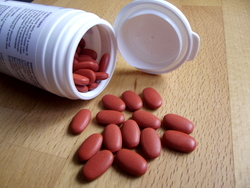
Research at the Institute for Transfusion Medicine in Pittsburgh, USA has examined whether supplements can benefit levels of iron and haemoglobin in blood donors. Donors in the US are allowed to give one pint of blood every 8 weeks (12-16 weeks in the UK), but about 25-35% of regular donors develop iron deficiency, and nearly 7% have to delay their donation due to low haemoglobin levels.
The researchers followed 215 blood donors, aged 18 to 79, at four blood centres. Participants had previously donated blood, but not within the last four months. Their levels of ferritin (a protein that stores iron and can be used as an indirect measure of iron levels) were measured, then they donated blood. Based on their original ferritin levels, participants were placed in one of two groups: higher and lower ferritin. Half of each group took an iron supplement daily for the next 168 days.
Those taking supplements more quickly returned to 80% of pre-donation haemoglobin levels in both the lower ferritin (32 days versus 23 weeks) and higher ferritin groups (31 days versus 11 weeks). Similarly, donors taking supplements recovered iron more rapidly. Overall, the median time for iron to reach pre-donation levels was 11 weeks among those taking supplements and 24 weeks in the no-supplement group.
“This study highlights the importance of maintaining iron levels after blood donation and shows that supplemental iron effectively restores hemoglobin, even in donors with higher iron levels,” say the study authors.
(Oral Iron Supplementation After Blood Donation: A Randomized Clinical Trial. Journal of the American Medical Association, 10 February 2015. http://jama.jamanetwork.com/article.aspx?articleid=2108889).
For current advice on blood donation in the UK, visit NHS Blood & Transplant.
